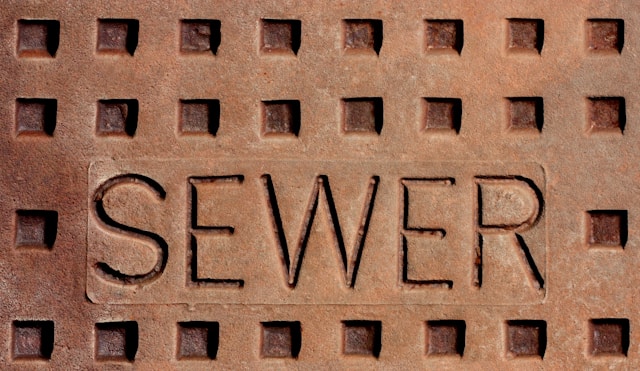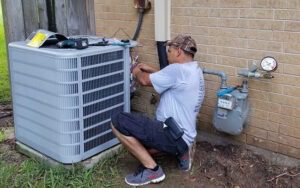The dreadful sensation of knowing that your house has got sewer backup can make any bad day a million times worse. Visualize the acrid sights, the nauseating gut-wrenching smells, and the health hazards that creep in. The backup of sewers is messy and inconvenient and carries serious health risks through exposure to raw sewage. The exciting news is that many steps could be taken beforehand as preventative measures, thus increasing the chances that this bothersome incident won’t happen. Let us navigate the world of sewer backups: mitigating risk, knowing what to do in the event of a disaster, and how to restore order during recovery.
Table of Contents
Understanding Sewer Backups: Causes and Consequences
Sewer backups occur when the regular wastewater stream is impeded through your drainage system. Such stoppers appear due to the main sewer line connecting to your home, which is located outside or in the plumbing system itself. Common culprits behind sewer backups include:
- Grease Buildup: Over time, grease flowing into the drain can harden and adhere to the pipes, thereby building an obstruction.
- Tree Root Intrusion: Tree roots can enter sewer pipes through cracks or leaks, eventually causing blockage and backflow.
- Foreign Objects: Anything but toilet paper, wastewater, and feces should not be flushed down the toilet, as this can lead to clogs and backups. This category covers products such as wipes, tampons, and dental floss.
Sewage contamination is a severe health risk. In raw sewage, bacteria, viruses, and parasites can be severe and cause serious human diseases. If you think that your home has flooded, you must take action immediately to minimize the risk to your health and prevent further damage.
Prevention is Key: Smart Habits to Avoid Backups
Preventive measures for sewer backups cost less than cures. Here are some essential habits to adopt to minimize the risk:
- Dispose of Grease Responsibly: Don’t pour grease down the drain. Let it cool down and become solid, and then put it all in the trash. You should provide that when planning or designing a plumbing system with grease traps.
- Embrace Responsible Flushing Habits: Only toilet paper, wastewater, and human waste are permitted in the toilet. Keep at bay foreign objects because flushing them can block the toilet, causing backups.
- Regular Plumbing Maintenance: Timely drainage cleaning should be carried out by an experienced plumber to prevent any accumulation that may result in obstructions. Also, the sewer line must be checked to identify and solve any issues before they become serious. You can read more at SOS Drain Cleaning.
Warning Signs: Recognizing the Threat of a Backup
Being sensitive to the early symptoms of a potential sewer backup will help you pull the problem in time before it becomes a full-blown disaster. Here’s what to watch out for:
- Slow Drains: Sinks that have water draining slower than usual may be a sign of the beginning of pipe clogging.
- Gurgling Sounds: Gurgling noises from drains may indicate air trapped in or partial sewer line blockage.
- Sewage Odors: A very simple sewer smell from vents or drains indicates a backup or a blockage.
When these warning signs appear, never ignore them. The sooner they are addressed, the less a minor problem can develop and cause bigger trouble.
Taking Action: What to Do When Disaster Strikes
If the unthinkable happens and you experience a sewer backup in your home, here’s what to do:
- Safety First: Turn the water supply valve to your home off to stop sewage flow. This initiative can significantly reduce the chance of further spread and destruction.
- Open Windows for Ventilation: Open the doors and windows to encourage air circulation and eliminate sewage odors.
- Avoid Contact: Don’t touch dirty water or sewage. When there is fluency, please put on boots and gloves to travel in affected zones.
- Call a Licensed Plumber: “Don’t Do it Yourself” regarding sewer line backup is not a good idea. It is recommended that the house owner call for a licensed plumber so that a professional can do the remediation of staying water. An expert will carry out the work, ensuring the safe and effective elimination of the blockage and inspecting its root causes.
The Aftermath: Cleaning Up and Repairing the Damage
A sewer backup aftermath necessitates a comprehensive cleaning and disinfecting process. As this work requires precautions, it may place you at risk. However, a restoration company can undertake it safely and effectively. They will disinfect contaminated areas, rid the appurtenant components, including mold and fungus, and ensure your home is safe and habitable as before. The level of repair required as a result of the blockage would vary depending on the severity of the problem, and it might also include plumbing repairs to address the root causes.
Long-Term Solutions: Investing in Sewer Backup Prevention
Beyond everyday habits, there are additional preventative measures you can consider:
- Install a Backflow Prevention Valve: A backflow prevention valve prevents sewage from backing up into your house’s drainage system if clogging occurs in the main drainage pipe.
- Schedule Regular Sewer Line Inspections: In addition to routine sewer line inspection and cleaning, you can ask for a professional pipe inspection at least two times every couple of years. This facilitates the early identification of possible issues such as cracks, root intrusion, or deterioration that might result in blockages.
Conclusion
Sewer overflow is undoubtedly a disgusting and potentially dangerous encounter. Nevertheless, if prevention measures are implemented, such as knowing the warning signs and how to respond in case of a backup, In that case, you can decrease the risk substantially and eliminate the severity of the damage. Recall here that you do not need much effort but only a little farsightedness to be free from all the stress, difficulties, and possible health problems you can confront. Give priority to health and hygiene in your home by considering the sewer backup prevention issues in the maintenance of your home as the main thing you do.
Featured Photo by Sharon Waldron on Unsplash




